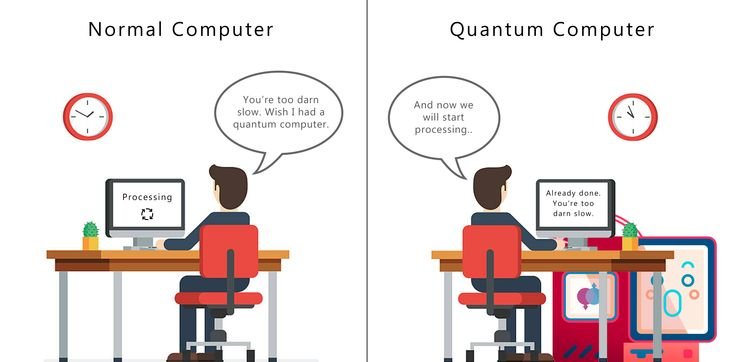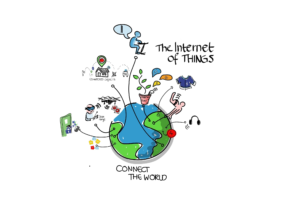Quantum Computing Simplified What It Means for the Future of Tech
Quantum Computing Simplified: What It Means for the Future of Tech is poised to revolutionize the technological landscape, promising exponential advancements across diverse fields. This transformative technology has the potential to reshape our understanding of computation, and its implications extend far beyond the realm of theoretical physics. This article will demystify quantum computing, explaining its core concepts and exploring the potential impacts on the future of technology. It’s designed for readers wanting a clear and accessible introduction to this complex field, free from complex jargon. We’ll break down the fundamental principles, explore potential applications, and analyze the hurdles to overcome. We will also discuss the broader societal implications of this revolutionary technology. This article will cover the key aspects of quantum computing, including its potential impact on various fields, and outline possible solutions to address the associated challenges.
1. Understanding the Fundamentals of Quantum Computing
1.1 Defining Quantum Mechanics:
Quantum mechanics is the branch of physics that describes the behavior of matter and energy at the atomic and subatomic levels. It differs significantly from classical mechanics, which describes the macroscopic world. The key concept to grasp is that quantum mechanics introduces probabilistic and wave-like properties into the description of physical systems. Quantum computing leverages these fundamental properties, such as superposition and entanglement, to perform computations.
1.2 Superposition and Entanglement:
Superposition allows a quantum bit (qubit) to exist in multiple states simultaneously, unlike a classical bit that can only be 0 or 1. Entanglement is a phenomenon where two or more qubits become interconnected, meaning their fates are linked, regardless of the distance separating them. This interconnectedness is crucial for quantum computation, enabling complex calculations beyond the reach of classical computers.
1.3 Qubits vs. Bits:
The fundamental unit of quantum information is the qubit, which differs fundamentally from a classical bit. A bit can exist in only one state (0 or 1) at a time, whereas a qubit can exist in a superposition of both states (0 and 1) simultaneously. This ability to hold multiple values simultaneously is the key to quantum computation’s potential to solve problems that are intractable for classical computers.
1.4 Quantum Gates:
Quantum gates are the fundamental building blocks of quantum algorithms. These operations manipulate the qubits, analogous to logic gates in classical computing. Quantum gates utilize the principles of superposition and entanglement to transform quantum states, leading to the desired outcomes.
2. Exploring the Potential of Quantum Computing
2.1 Drug Discovery and Materials Science:
Quantum computing has the potential to revolutionize drug discovery by enabling simulations of molecular interactions with unprecedented accuracy. This allows researchers to predict the behavior of molecules and design novel drugs and materials with tailored properties, vastly accelerating the process.
2.2 Financial Modeling and Optimization:
Quantum algorithms can solve complex optimization problems in finance more efficiently than classical algorithms. This includes portfolio optimization, risk assessment, and fraud detection. Quantum computing has the potential to reshape the financial landscape, leading to more precise predictions and optimized decision-making.
2.3 Optimization in Supply Chains and Logistics:
In industries like logistics and supply chain management, quantum algorithms offer opportunities for efficient resource allocation. They can tackle the complexities of optimization problems related to transportation routes, inventory management, and warehouse layouts. Potentially reducing costs and improving efficiency.
2.4 Advancements in Artificial Intelligence:
Quantum computing could lead to advancements in AI by enabling more powerful machine learning algorithms. This can lead to the development of more sophisticated AI models capable of tackling complex tasks, from image recognition to natural language processing.
2.5 Cryptography and Security:
Quantum algorithms could potentially break current encryption methods, posing a significant challenge to cybersecurity protocols. This necessitates the development of quantum-resistant cryptography, making cybersecurity a crucial aspect of quantum computing.
3. Addressing the Challenges of Quantum Computing
3.1 Maintaining Qubit Stability:
One of the primary hurdles in quantum computing is maintaining the delicate quantum states of qubits. Quantum systems are highly susceptible to environmental noise, which can decohere the qubits, resulting in errors in computations. Significant research efforts are focused on developing robust quantum systems with better error correction techniques.
3.2 Building Scalable Quantum Computers:
Creating a scalable quantum computer that can handle a sufficient number of qubits to perform meaningful computations remains a significant challenge. The technology for constructing large, stable, and interconnected quantum systems is still under development.
3.3 Developing Quantum Algorithms:
Developing new and efficient quantum algorithms tailored for specific problems is crucial for realizing the full potential of quantum computing. Research in this area aims to create quantum algorithms that outperform existing classical algorithms for relevant applications.
4. The Future of Quantum Computing in Technology
4.1 The Road Ahead:
The future of quantum computing is bright. As research progresses, these challenges will be addressed, leading to the development of more powerful and reliable quantum computers. We can anticipate significant advancements across various sectors as the technology matures.
4.2 Current Research and Development Efforts:
Companies and research institutions around the world are actively involved in quantum computing research and development. Significant investment and funding are driving innovation and advancement in this field.
4.3 Societal Implications:
The advent of quantum computing brings considerable societal implications, including the need for new skills, educational reform, and responsible development.
4.4 Education and Workforce Readiness:
Educating the workforce on quantum computing principles is critical for harnessing its potential. Governments and institutions must establish programs to prepare professionals for the demands of this emerging field.
4.5 Ethical Considerations:
Ethical considerations surrounding quantum computing are equally important as the technology develops. Discussions about responsible development and use of quantum technology are vital.
Related Post : How Biotech Is Pushing the Boundaries of Medicine and Healthcare
5. Practical Implications and Examples
5.1 Example of Quantum Algorithm Applications:
Examples of quantum algorithms in action include Shor’s algorithm for factoring large numbers and Grover’s algorithm for database searches. These algorithms demonstrate the potential to perform computations that are intractable for classical computers.
5.2 Impact on Current Industries:
Quantum computing is predicted to transform various industries, ranging from materials science to financial modeling. As the technology develops, its impact will become more pronounced and widespread.
5.3 Future Predictions for Quantum Computing:
Future advancements are expected to unlock groundbreaking applications in fields like medicine, materials science, and artificial intelligence. This underscores the need for further investment and research.
In conclusion, Quantum Computing Simplified: What It Means for the Future of Tech offers a glimpse into the transformative potential of quantum computing. Its profound implications for various sectors—from medicine and materials science to artificial intelligence and finance—underscore its importance in shaping the future. To delve deeper into this revolutionary field, explore the available resources and programs for learning more about the principles and applications. The future of technology hinges on our understanding and adoption of this powerful technology. Stay tuned for further advancements in the exciting world of quantum computing!
Share this content:














Post Comment